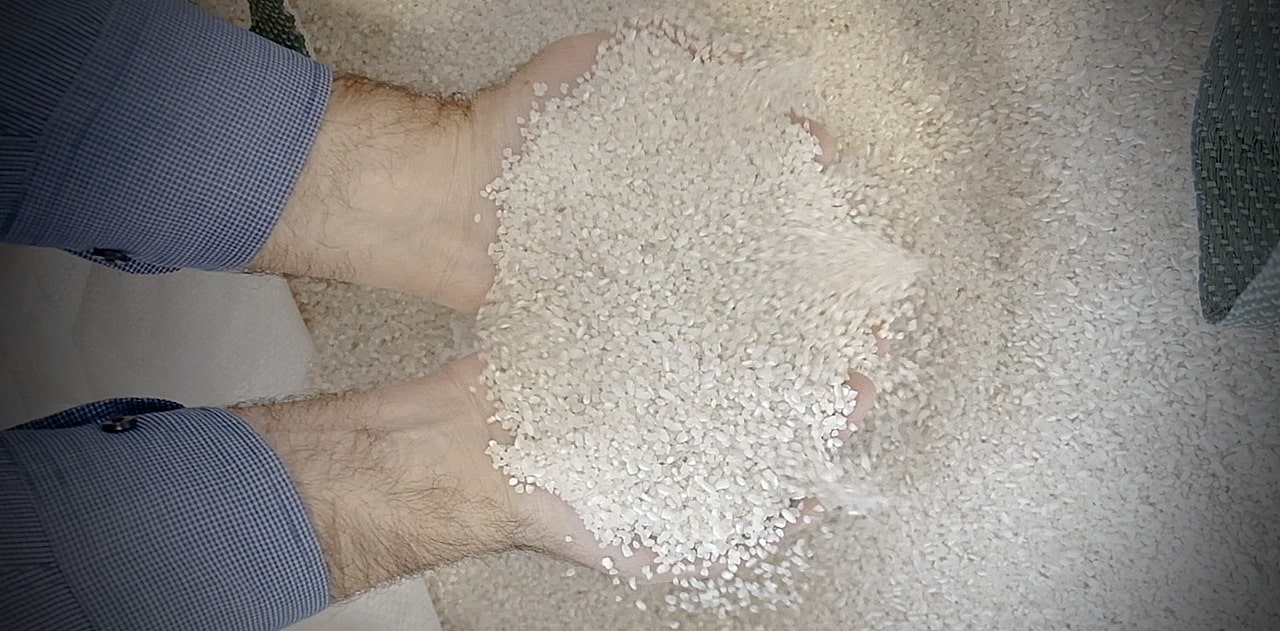In the plain of Sibari, a stone’s throw from the colony of the same name in Magna Grecia, the hori-zon profile, as far as the eye can see, is dotted with rice fields, which, together with olive trees and expanses of clementines, draw the agricultural landscape of this nestled portion of Calabria betwe-en Pollino and the Ionian coast. Here biodiversity rhymes with quality, research, territorial develo-pment, marrying a type of cultivation with a low environmental impact and focusing on the identity of the cultivars. Here the Greeks in the ancient colony of Sybaris had already dedicated themselves to the cultivation of the herbaceous plant which today represents a great return to the future for a group of entrepreneurs animated by Giancarlo Praino’ dream, founder of Magisa: a young entre-preneurial reality that has marked the added value of a territory, blending agricultural tradition, hi-story and culture with innovation.
Innovation and native cultivars
Here Giancarlo’s “dream” was nourished and consolidated into an entrepreneurial reality that today exports rice from the Ionian plain to half the world, thanks to its attention to the territoriality which has become the added value of a production that looks at autochthonous cultivars in a particular and modern way, entrusting the studies on local ecotypes – present in the Sibari plain since 1930 – to a group of researchers from the University of Bari and to the agricultural geneticist Giandomenico Polenghi. The Magisa group, after ten years of research, has entrusted the exclusivity of the black jemma rice, a wholemeal black pericarp so rich in nutrients, 98% of crude fiber and very digestible that it has a very low glycemic index. He is the newly born in the varietal bouquet of the only “Calabrian pride” rice mill in the Southern Italy – as Sara Praino, managing director of the Magisa group defines it – and recorded today in the national register of the body of types of rice as the first native cultivar in the plain of Sibari.
Giving value to the territory
With this work started in 2004 from the birth of the brand that today brings together several com-panies in the area (including Terzeria farm, La zagara farm, Luigi Rizzo farm) Magisa has chosen to close the supply chain by creating an “added value to the territory” and transforming all the rice produced in the Sibari plain, specializing in the production, processing, transformation and marke-ting of rice. Starting from a family agricultural tradition, with the grandfather and father first engaged in the cultivation of the land and in the grazing of animals, the third generation (Maria, Giusy and Sara – acronym of Magisa) gave that innovative and propulsive impetus to look at the new production scenarios but with a solid experience linked to the historicity of local agriculture. “We have tried – emphasizes Sara Praino – to maintain traditional cultivation while exploiting the innova-tive techniques of the agriculture and the processing”. The pedoclimatic conditions of the area ha-ving an extraordinary level of salinity, the proximity to the sea, the drinking water which the flowing rice fields are fed with, have allowed to characterize the production by giving the product “unique organoleptic qualities”.
Kosher certification
A project of territoriality that has gone beyond national borders, gaining an intercontinental charac-ter not only with the sale in countries such as Canada, Germany, France, Dubai, but above all with the acknowledgement of the Kosher certification, among the most rigid ones in terms of control of origin and traceability of products. “With this result – the producers of Magisa explain – we can tell the consumers that what they buy is really the good rice of Sibari”. Of the 650 hectares involved in the production of rice, over 430 are managed by the group which, from the intuition of Giancarlo Praino, saw Agostino Rizzo and his family, nowadays represented by Daniela and Paolo, coopera-ting in such an entrepreneurial adventure, the latest generation and an integral part of the Magisa vision together to the founder’s three daughters. Quality, genuineness and tradition are the values of a production choice which brings every day on the table a piece of Calabria in Italy and around the world.
The short agricultural chain
The flagship of the company based in Villapiana and lands spread throughout Corigliano, Rossano and Sibari, is to boast the ability to control the entire production cycle, from the field to marketing. The rice fields, all attributable to farms neighboring the factory, are the guarantee of the valorisation and the support for the short supply chain. Each step of the production is subject to scrupulous attention, managing to trace every aspect: from the seeds (mostly self-produced) used for sowing, which add a high germinative power and complete maturation, up to the various stages of growth and harvest, before passing to the drying, the husking and the packaging processes.






